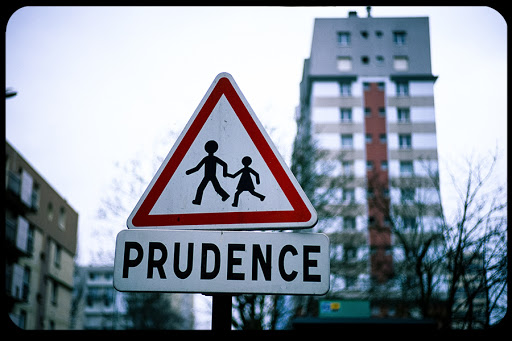Previously, I’ve written about the importance of being a virtuous man, but it’s difficult to pursue virtue if we don’t first know what virtue is. Fortunately, Mother Church, building on the great thinkers of the ancient world, has outlined exactly which seven virtues we should pursue, and she has given us clear definitions of each.
The first four virtues are called the cardinal virtues because they play a primary role in our formation. They are prudence, justice, fortitude, and temperance.
The first cardinal virtue is prudence. Now, prudence isn’t just the name of your great aunt on your mother’s side. It has been called the “charioteer of the virtues” since it helps control and moderate all of the other virtues we possess. Here’s how the Catechism defines it:
Prudence is the virtue that disposes practical reason to discern our true good in every circumstance and to choose the right means of achieving it; “the prudent man looks where he is going.”
CHOICES, CHOICES
The spirit of the age idolizes choice. At the grocery store, there are ten kinds of cheese, the mall is full of competing stores, hundreds of electronic devices flood the market, and we even have 20 different shampoos to choose from at the drugstore.
More importantly, on a moral level, society enshrines the ability to choose anything—even disordered sexual activity or killing one’s own children through abortion—as sacred. The majority of men today sincerely believe that they have a fundamental right to choose any action, regardless of its morality, without consequences.
But the ability to choose is inherently a neutral thing. It is what we choose that matters, and that’s where prudence comes in. Prudence helps us apply what we know to be right and true to situations in every day life and make good choices as a result. Put another way, prudence helps us to be “doers of the word, and not hearers only,” as St. James says.
ACQUIRING PRUDENCE
Since prudence is not a choice, but rather something that governs our choices, it is a more difficult virtue to acquire. Still, it isn’t impossible, and here are at least three ways to become a more prudent man.
1. Learn from your mistakes: Many times in life, we make painful or humiliating choices. When this happens, we can either feel sorry for ourselves, or we can learn from our mistakes and gain wisdom. If we choose to learn from our mistakes, our deposit of knowledge builds up over time, providing us with a reservoir of experience that we can use to make prudent choices.
2. Learn from others: If there’s one lesson the wisdom books of Scripture (Wisdom, Sirach, Proverbs, etc.) seek to drive home, it is the importance of learning from those who are older than wiser than we are. This takes humility, but if we can borrow the experience of others to fill our prudential reservoir, it will save us from many painful lessons.
3. Consider carefully: Men tend to be rash and hasty in judgment, whereas women tend to be more careful and cautious. Sometimes our manly impulsiveness can be a good thing, but most of the time it is not. When faced with a choice, we need to control our desire to leap into action, and instead carefully consider the ramifications of our choices. As St. Augustine said, “Patience is the companion of wisdom.”
CONCLUSION
Prudence is a virtue that takes time to acquire, but because it governs the other virtues, it is one of the most important virtues we can possess. Choose to learn from your mistakes, learn from others, and patiently consider your choices, and before you know it, you will be well on your way to prudent and wise manhood.
What about you? Does prudence come naturally to you? Do you consider yourself a prudent person?
Sam Guzman is the founder and editor of the Catholic Gentleman where this article was originally published. It is reprinted here with permission.

